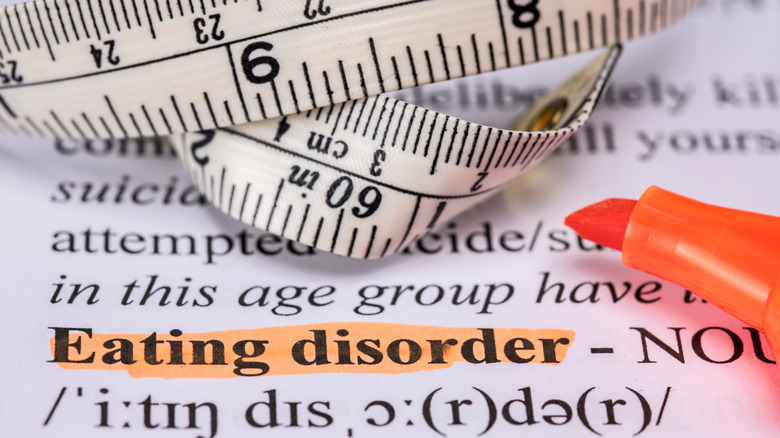Why Listing Calories On Restaurant Menus Might Not Actually Be Helpful
There is a definite link between fast food and obesity in America, per BioMed Central. As such, the federal government decided in 2018 that "covered" eating establishments and restaurants were to list their food items' calories on the menu or in plain sight, according to the Food and Drug Administration.
According to the CDC, there was a 41.9% "obesity prevalence" in the United States between 2017 and March of 2020. Additionally, per World Population Review, the country has the 12th biggest obesity problem in the world. The health condition leads to 300,000 deaths every year In America alone, per the West Virginia Department of Health and Human Resources. Looking at it from this perspective, the FDA's action may seem more reasonable. Obesity is, indeed, a problem, and it does not seem to be going away anytime soon. However, experts on eating disorders feel that listing calories on menus is counterproductive. Here's why.
The adverse effects of displaying calories on menus
Knowledge is power, they say. So, does a calorie count on every menu empower the population? Do we become more circumspect about what we eat? Well, the data's in, and according to the results of a meta-analysis by the National Library of Medicine, the answer is: not significantly. Instead, it runs the risk of creating more harm for those with eating disorders.
According to Walden, eating disorders are classified as food-associated mental illnesses and can prove fatal. Per ANAD, 9% of the American population has an eating disorder, and 10,200 deaths occur in the country because of eating disorders every year.
The National Library of Medicine explains that people living with eating disorders are prone to become obsessive about counting calories. According to BBC, psychiatrist Sandeep Ranote feels that calories printed on menus are likely to have an adverse effect on people with this kind of illness, making it dangerous for individuals experiencing conditions such as bulimia and anorexia. Visible calorie counts, he says, could undo some of the progress patients have made in forming a more positive relationship with food.
If you are struggling with an eating disorder, or know someone who is, help is available. Visit the National Eating Disorders Association website or contact NEDA's Live Helpline at 1-800-931-2237. You can also receive 24/7 Crisis Support via text (send NEDA to 741-741).

